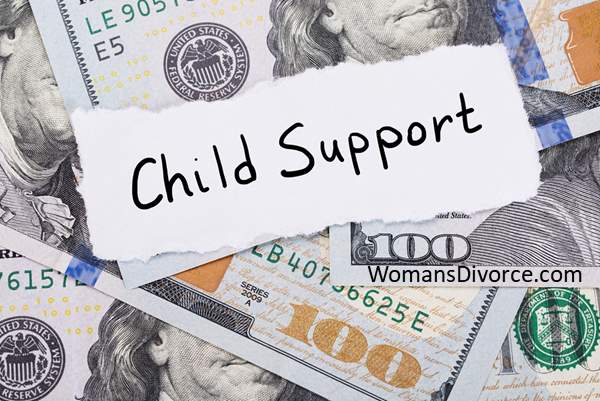Your Child Support Payment Options
By Tracy Achen
Are you wondering how you'll receive your child support payment after everything gets finalized? Most people facing a divorce are. If you're just starting the process, it helps to understand that establishing a child support obligation is generally done through a court order. Court orders for support are usually issued in conjunction with a divorce decree, custody and support action, paternity suit, or other legal action.
The most important thing to remember about any child support agreement is to get it in writing; either through a court order or other legal document. Yes, you can reach a verbal agreement about support, but if it's not in writing, it's not enforceable.
So, what are the most common methods of paying and receiving child support? Keep reading to find out the various options, as well as some of the pros and cons of each...
Wage Assignments
All states have provision requiring income withholding orders to be issued in conjunction with child support orders. This is done to insure the support obligation will be fulfilled. With such an order, support payments can be withheld from the non-custodial parents' paycheck, unemployment, or worker's compensation benefits. The payments are usually submitted by the employer to the custodial parent, the county or state disbursement office, or the state's child support enforcement agency and then paid to the custodial parent.
There are benefits to having support handled this way. An outside agency handles the collection and payment of child support. Should a dispute arise regarding payments, there are computerized records of payments made and disbursed. And the state agencies have the ability to revoke licenses, seize tax refunds, and more for delinquencies. On the other hand, custodial parents sometimes get frustrated due to backlogs in paperwork and delays in receiving the support payment.
Direct Payments

The income withholding requirement may be bypassed if both parents agree not to use wage withholding and the judge signs off on such an agreement. This often occurs when the parent obligated to pay support is self-employed, is paid only on a commission basis, or is routinely unemployed. When direct payments are handled between the parents, these are the most common methods:
Check or money order
- Pros - Simple and direct with no third-party intervention. Cancelled checks and money order receipts can serve as proof of payment.
- Cons - No third-party involvement also means payments may not be as reliable, parties must maintain good records of payment and arrears, and checks can get delayed or lost in the mail.
Cash Payments
- Pros - No checks or bank accounts involved.
- Cons - This is a very hard method of maintaining proof of payment or receipt.
Bank Drafts
- Pros - Payment is debited from the payer's account and deposited into the payees account. Payments can be scheduled weekly, bi-weekly, and monthly. No mail delay or potential for lost checks
- Cons - Payment will not be made if there are insufficient funds in the obligated parent's account.
Online Payments
- Pros - Many state agencies now offer parents the option to pay their child support online. There are also other online services that offer this capability. Payments to the custodial parent can be made by direct deposit or via a debit card.
-
Cons - Participants need to make sure their computer is virus free and their network is secure to protect financial data.
Child Support Payment via a QDRO
The child support obligation may also be met by using funds from a pension plan as outlined by a Qualified Domestic Relations Order (QDRO). These orders enable a pension account to pay an alternative payee according to the stipulations of a court order. Support payments are generally issued by the fund administrator to the custodial parent. It is important to note that child support paid through this method is considered taxable income to the receiving parent, whereas most other methods are not.
Regardless of the method of payment, the most important thing to remember is you need to be proactive if you aren't receiving the child support payment in a timely manner. Failure to enforce your support order means delinquent back-support will continue to build while your children go without the necessities they need.
If you are really having difficulty collecting the child support owed, you can find out what your options are in the book "Deadbead vs. Deadbroke" (#ad) by Simone Spence. I reviewed the book and was really impressed with the amount of valuable information it contained. Plus, I picked up a lot of tips that aren't widely known. This is a book that I would definitely recommend to any woman struggling to get support payments. (As an Amazon Associate I earn from qualifying purchases.)
The following articles contain more information about child support and other issues that may come up during and after your divorce...
